Director: Takashi Miike
Cast: Ryunosuke Kamiki, Mio Yuki, Sota Fukushi, Hirona Yamazaki, Shota Sometani, Nao Omori, Lily Franky, Atsuko Maeda, Tsutomu Yamazaki, Ryuhei Ueshima , Jimon Terakado, Katsuhiro Higo, Yuuka Suzuki
Running Time: 118 min.
By Paul Bramhall
Takashi Miike is undoubtedly one of the most recognizable names in Japanese cinema, having garnered a dedicated cult following ever since he gained international recognition/notoriety with the 1999 horror Audition. As a director he’s come a long way since the crazy DTV days that defined his early career, with much of his fan base citing the 2010 remake of the chanbara classic, 13 Assassins, as the point that Miike became mainstream. It’s a fair point of view, as indeed the post-2010 Miike output has been populated with kid’s movies, video-game adaptations, and the daunting task of converting manga for the big screen.
However during the period of 2012 – 2014, Miike seemed to revert back to his love of horror, and the bloody mess that often comes with it. Lesson of the Evil turned its attention to a high school teacher, who decides the best way to deal with his unruly students is to blow their heads off, quite often literally (understandably, the movie has never been released in the US), while Over Your Dead Body explored the blurred lines between fantasy and reality. As the Gods Will was the last to be released of the three, and was based on a manga which ran from 2011 – 2012.
I confess to having no familiarity with the source material, so this review won’t be offering up any comparisons to how faithful (or not) it stays to it. If anything, Miike’s manga adaptations have often been criticised for staying too close to their comic book origins, as opposed to the usual complaints of how many liberties they take, with his latest Blade of the Immortal being a good example. The plot of As the Gods Will revolves around a high school student, played by Sota Fukushi (the lead in the live-action Bleach), who prays to God for some excitement to liven up his dull life. With no explanation, his wish is granted when he’s abruptly forced to play in a number of life and death games with his classmates, presided over by various dolls and over-sized figurines that have come to life.
If the above plot description sounds somewhat baffling, then watching it onscreen is no less so. As the Gods Will is one of those tales that would, if it hadn’t been made into a movie already, be called un-filmable. Indeed if anyone other than Miike was behind it, I’d be one of those voices. Dispensing with any kind of lead in or build-up of tension, Miike throws us straight into it, with a classroom overseen by an angry, blood-shot eyed Daruma doll, who makes the heads explode of any student that moves. It’s a dizzying opening, one splattered in blood and, bizarrely, red marbles, but also one that sets the tone for the next 115 minutes. In As the Gods Will we join when the roller-coaster is already at the top of the peak, so you either take a deep breath and enjoy the ride, or close your eyes and wait for it to be over.
Fukushi’s mind is as scrambled as the audiences, as he’s barrelled from one game to another with a rapidly dwindling number of classmates, including his crush (played by Hirona Yamazaki), and a murderous psycho (Rurouni Kenshin’s Ryunosuke Kamiki, clearly channelling Masanobu Ando’s unhinged killer from Battle Royale). In many ways the structure of As the Gods Will would be recreated just a year later with Sono Sion’s Tag. Both involve high school students being killed off by a murderous force, one which remains ambiguous throughout, leaving the audience wondering what’s going on as much as the characters themselves. As the Gods Will is ultimately the more satisfying of the two though, despite it being over half an hour longer, and displaying an equal lack of characterisation of its key players.
This is mainly due to Miike’s handling of the material. One of the most common criticisms against his movies, dating as far back as Agitator, is that they can be overlong. With a runtime just short of 2 hours, As the Gods Will feels like it should be a likely candidate for such comments, however the time passes remarkably quickly. Yes the concept is somewhat of a one-trick pony, but Miike uses each game to reinvent what can be done with the concept, almost making each one like its own standalone segment. While this could have easily led to proceedings feeling disjointed and unevenly paced, here he makes it work in the movies favour.
From taunting Daruma dolls, to over-sized maneki-neko’s, to snowboarding polar bears – they’re all here. What’s particularly interesting is the use of CGI. While I’m almost 100% sure all of the effects are done with CG, Miike uses it to emulate more traditional practical effects work. From animation, to stop motion, the concept of using modern technology to replicate the very techniques it was intended to replace is somewhat of a stroke of genius. As a result, the effects of the various God-like incarnations remain entertaining throughout, as it becomes a thrill to look forward to whatever we’re going to be confronted with next rather than a chore.
In many ways As the Gods Will is a good example of when Miike’s tendency to stay true to the source material was the right one. You can imagine the producers sitting in a room discussing how to convert a sequence into cinematic language, which involves a gigantic maneki-neko eating a bunch of students dressed as mice via its spring loaded head, all the while complaining that it needs its back scratched. Then Miike strolling in and declaring that he plans to film it exactly as it appears in the manga. He applied much the same principle to 2009’s Yatterman, and seems to be of the firm belief that half the fun of adapting a manga into a movie is converting the page to the screen as closely as possible. If it was Miike in the director’s chair for an X-Men movie, I have no doubt we’d be watching Hugh Jackman run around in yellow spandex and crescent shaped shoulder pads.
With that being said, As the Gods Will also falls victim to Miike’s erratic tendency to jump between genres with what he chooses to direct. If a Miike movie needs a sequel, the question of when we’ll get it is always an open one. While Crows Zero received a follow-up just a couple of years later, in the case of Zebraman it was a whole 6 years before a sequel arrived. Both Lesson of the Evil and As the Gods Will throw in cliff-hanger endings, however with a schedule that strongly indicates more instalments of JoJo’s Bizarre Adventure (and maybe more Terra Formers and Mole Song tales?), then quite when we can expect more God induced madness is open to debate.
It’s unfortunate, as the story drops a number of hints at the bigger picture that’s unfolding outside of the games. Large white cubes have appeared in the sky around the world causing mass panic, and there’s a grown man locked up in his bedroom manically researching the Children of God, who seems to have some answers. The man is, interestingly, played by Nao Ohmori, of R100 and Miike’s own Ichi the Killer fame, indicating that he has a significant role to play later on. Then you have who appears to be God himself, played as an anonymous wanderer of Tokyo’s streets by Lily Franky (also in Miike’s Yakuza Apocalypse). While their screentime clocks in at less than 5 minutes between them, their presence is clearly an important one, and personally I hope we’ll see more of them to explain how they fit into the puzzle.
While As the Gods Will doesn’t plunge too deep into the graphically violent depths of some of Miike’s earlier works, there’s no mistake that it’s the work of Japan’s busiest director. With enough head-shaking moments, laugh out loud bursts of black humor, and the playful tone of an auteur working with a budget he likely spent most of his career dreaming of, As the Gods Will won’t answer every Miike fans prayers, but it should leave them thoroughly entertained.
Paul Bramhall’s Rating: 7.5/10


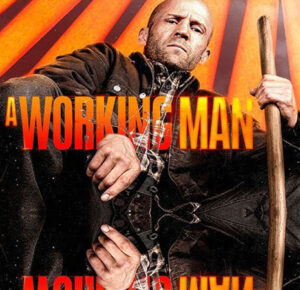
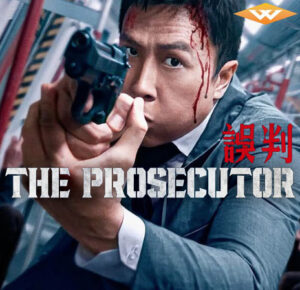
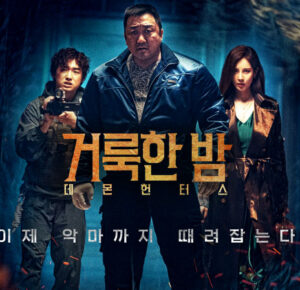
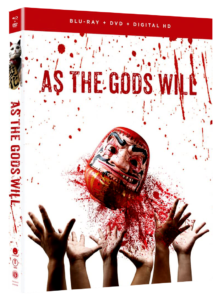



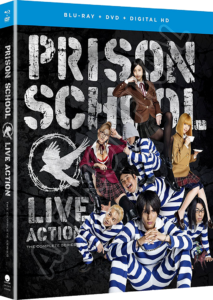
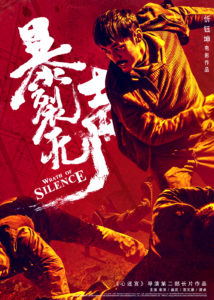
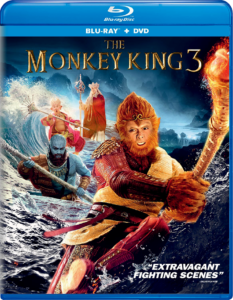
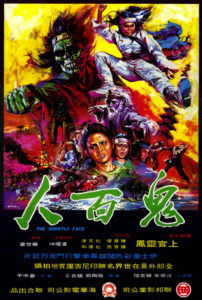
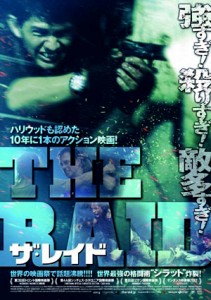
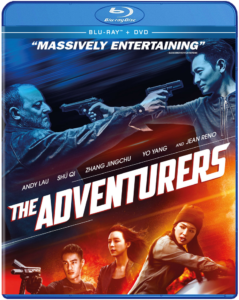
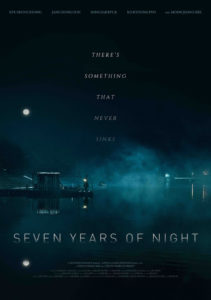

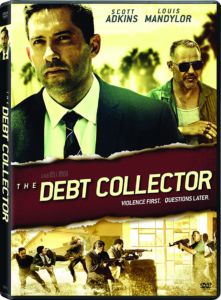
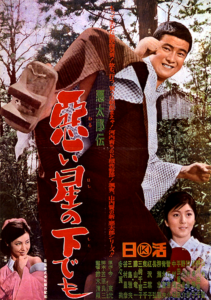



3 Comments